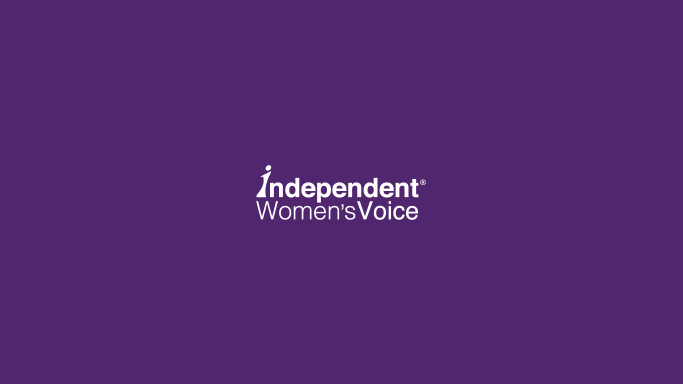
March 24, 2021
Dear Chairperson Klobuchar, Ranking Member Blunt and Members of the Committee,
Independent Women’s Forum (IWF), Independent Women’s Law Center (IWLC), and Independent Women’s Voice (IWV) stand behind measures to ensure free and fair elections, which for 100 years have provided women an equal opportunity to make their voices heard at every level of government. Many provisions of S.1 are of concern, including those that eliminate basic election security measures and require substantial taxpayer funding of certain candidates. This statement specifically addresses Title IV, which poses a unique harm to the participation of women in our democracy. We urge Congress to reject this incursion into the right of freedom of association, which remains a bedrock of our Constitution and the guardian of equality for all Americans.
Anonymous Civic Engagement Has Been a Force for Equality Throughout History
Non-profit advocacy groups play an essential role in the marketplace of ideas that form the foundation of a free republic. Many of these groups, including those that advocate for women’s issues, benefit substantially from anonymous donations.
In fact, the women’s suffrage movement was underwritten in large part by anonymous contributions from donors like Pauline Agassiz Shaw. Shaw contributed generously and anonymously on more than one occasion to the National American Woman Suffrage Association—including a 1913 donation of $30,000, nearly $800,000 in today’s dollars. That contribution was critical to the organization’s mission, providing more than 75 percent of its 1913 budget. Other underwriters of the women’s suffrage movement remain anonymous to this day. For example, one unnamed woman donated $35,000 to the suffrage campaign in New York in 1914. (That donation was 77 percent of the campaign’s October 1914 fundraising drive, which raised a total of $45,056.)
Well over a century later, many women’s organizations continue to rely on donations, some of them anonymous, that allow them to pursue their mission of advocating for policies that benefit women.
The “For the People” Act Harms Women’s Organizations by Threatening Donor Disclosure.
Division B, Title IV “Campaign Finance Transparency” of S.1 includes multiple provisions that threaten the role that anonymous giving has played in increasing women’s civic participation and supporting women’s causes.
Congress has previously determined that groups engaged in “electioneering communication” must make certain disclosures, and the Supreme Court has upheld these requirements finding that the required disclosures bear a substantial relationship to an important government purpose. Title IV goes well beyond these disclosure requirements, however, and will hamper not only participation in electioneering communication, but civic engagement in general.
As this Committee is aware, Title IV requires that certain non-profit groups that engage in “campaign- related disbursements” publicly identify the names and addresses of donors who gave $10,000 or more. S.1 defines campaign-related disbursements to include electioneering communications, independent expenditures “expressly” advocating for the election or defeat of a candidate, communications related to judicial nominations, and public communications that promote, support, attack, or oppose the election of a named candidate.
Although the latter definition purports to require the communication to regard the “election” of a candidate, the limitation is meaningless in practice because this section also expressly states that such speech may be regulated “without regard to whether the communication expressly advocates a vote for or against a candidate.” In other words, whether or not the law would apply to a particular communication will ultimately depend on a subjective determination. Essentially any communications that promote, support, attack, or oppose the policies of an official running for re-election risk of triggering this subjective review.
Had this bill been the law of the land in 1913, it might have required the National American Woman Suffrage Association to disclose Pauline Shaw’s critical and anonymous contribution, as surely the suffragists issued communications calling upon elected officials to support the giving women the vote.
In addition, campaign-related disbursements include giving grants to another organization if the group has “reason to know” that the other organization will engage in campaign-related disbursements in the upcoming two years. This again turns on a subjective determination of what an advocacy group “should” know.
Given such a broad and vague definition of campaign-related disbursements, potential donors to advocacy groups, such as Pauline Shaw, would be rightly concerned that the advocacy group may trigger disclosure requirements by merely taking a position on a policy issue and mentioning an elected official.
Imagine, for example, a women’s group speaking out against sexual harassment in the workplace and asking specific members of Congress to take a stand on the issue. Depending on whether those members are up for re-election, such communications could be deemed campaign-related disbursements in opposition to their election.
Likewise, a women’s group might donate money to an organization that trains young women for STEM careers, only to find out that the organization issues communications urging named members of Congress to support federally-funded STEM grants for women and girls.
Both of the above described scenarios could trigger disclosure requirements. Given this risk, some donors–out of fear of harassment, risk to friendships, concern about unwanted solicitations, or just a preference for certainty over the unknown–may limit their support to advocacy groups that seek to advance policies that are advantageous to women. We, therefore, urge you to reject this assault on the right of freedom of association which could substantially harm groups that advocate on behalf of women and other worthy causes.
Respectfully,
Carrie Lukas, President, Independent Women’s Forum
Jennifer C. Braceras, Director, Independent Women’s Law Center
Hadley Heath Manning, Director of Policy, Independent Women’s Voice

